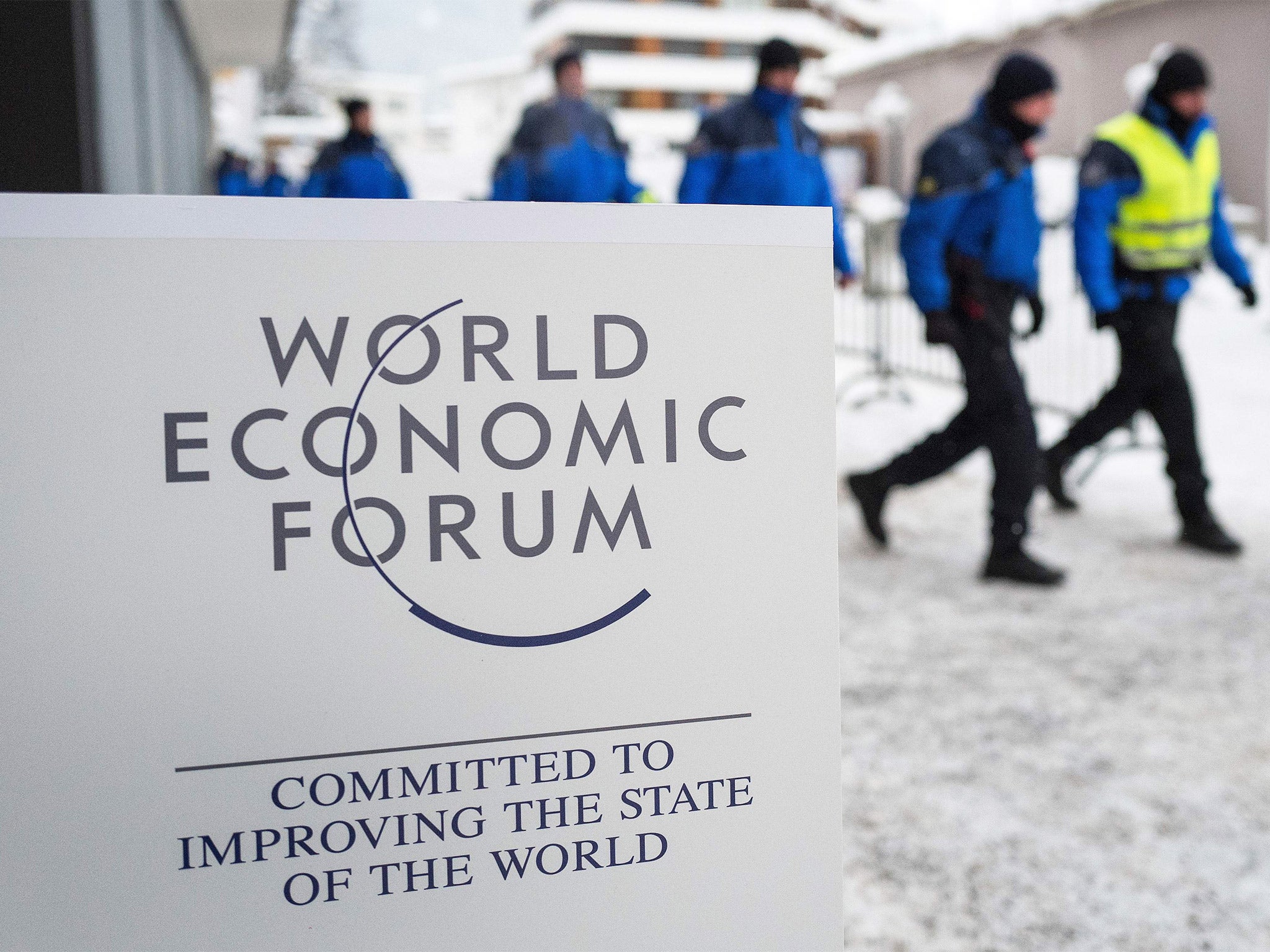You might think that technology is the solution to poverty – but here’s why you’re wrong
Technologies created and sold by big business will be rolled out by Davos in place of real solutions to global inequality

In the Soviet Union, a strange cult called biocosmism held that technology would eventually produce everything promised by the old religions: reincarnation, immortality, an end to all suffering. The same faith seems to be shared by the world’s elite who are meeting in Davos, Switzerland this week at the World Economic Forum.
Davos is an away day for global capitalism, where the world’s 1 per cent mouth concerns about poverty and climate change, while planning how to maintain an increasingly shaky status quo. This year, the forum focuses on the ‘fourth industrial revolution’ – the role that digital technology will play in recreating our world.
Because Davos Man has a problem. The very system that allows him to accumulate such vast wealth is fuelling resentment and impoverishment. As Oxfam told us, 62 people have more wealth than the bottom half of the world’s population. Even in the heart of the system, in the USA and Europe, large sections of the population have no faith at all in the institutions that govern society.
The solution, for Davos Man, is technology. Technology allows us to grow more food, to slow down climate change, to provide all of our energy needs, to end all of our suffering. And best of all, for Davos Man, it does this without challenging the status quo from which they derive so much. No wonder it is the topic of the week.
Bill Gates is the epitome of ‘Davos Man’; an entrepreneurial genius who also cares passionately about the planet and the many poor people on it. The world’s richest man can’t give his money away fast enough, quite literally, because his wealth grows by multiple billions of dollars every year, a symptom of an economic system skewed to the interests of the very richest.
As the week passes, we will hear many commentators opine ‘if only all billionaires were like Bill Gates’. Who wants to question his statement this time last year that, if we just keep going “there will be almost no poor countries by 2035”. In their desire to believe, commentators barely question the legitimacy of the enormous power that corporate leaders like Gates hold over the world, or the vision of a world in which technology can solve our problems.
Is it legitimate that the world’s richest man has so much power over, for example, global agricultural policy. Because as UBS admitted this week, while yet-to-be-invested technologies can theoretically provide abundance for all, the power of the 1 per cent actually means that, all things being equal, those technologies will simply reinforce that power.
We can see this in Gates own ‘charitable’ projects. Gates charitable foundation is the 12th biggest contributor to aid in the world, spending more than Canada, Belgium Denmark or Italy. At the centre of Gates’ vision for ‘development’, big business will innovate new technologies to eradicate want.
Take agriculture. Gates foundation is the biggest funder of research into genetic modification in the world. Gates pushes intensive farming methods involving plenty of chemicals and privatisation of seed distribution. Time and again, these ‘solutions’ have proved disastrous for small farmers, allowing big players to effectively control the whole food system. They also ramp up global carbon emissions and fuel global warming.
But they are exactly what big business wants. In fact, Gates aid sometimes look as if it is designed to help agribusiness develop new markets – like a project with agro-giant Cargill which helped it develop soya ‘value chains’ in Africa.
It’s not a conspiracy, it’s simply how Davos Man believes the world works. Big business invents useful stuff and drives growth. Let’s help them and everyone will be better off. The real solutions – challenging the power of corporations, and creating more democratic solutions – are swept under the carpet.
The cult of technology is useful for the world’s most powerful people. But if the rest of us are really interested in creating a better world, we need to look beyond the words of Davos Man and challenge his power.
Join our commenting forum
Join thought-provoking conversations, follow other Independent readers and see their replies
Comments
Bookmark popover
Removed from bookmarks